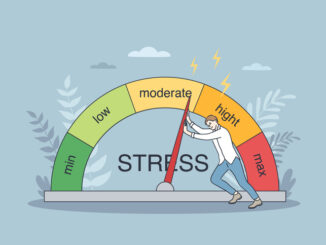
Handling difficult conversations with an underperforming employee using the SCOPE model
CREDIT: This is an edited version of an article that originally appeared on Management Today
Let’s be honest, most of us underperform occasionally; we are only human and we cannot give our best all day, every day. Occasional under-performance is not really a problem – the challenge is when occasional under-performance deteriorates to poor performance most of the time. Knowing when to intervene is important, and the answer is, ‘Earlier than you think’.
Even if someone is just having an ‘off day’, catch up with them quickly. The more you can prevent bigger performance issues from developing, the less you will need to worry about performance and the easier your life will be.
The first challenge is to be honest with yourself. Ask yourself if you are part of the problem. Are you causing the problem? Have you given feedback on this matter before? Have you ignored the problem, hoping it will go away? If you have ignored the problem, why? Are you scared of the person? Are you worried that saying something will make everything worse?
Delaying for these reasons will usually make the situation worse. Planning your approach before having a conversation will almost certainly lead to you being in a better place, even if the world is not instantly perfect. Think through all the possible outcomes of the situation, such as:
- You do nothing and everything resolves itself anyway, or you do nothing, and things get a lot worse; perhaps some of your best team members start leaving.
- You intervene and things improve, or your colleague gets upset, or maybe they realise that, perhaps, this role isn’t for them after all.
There are many possible outcomes. Try to develop at least six, including the outcome you most want, the outcome you most fear, and the outcome that seems the most likely. Remember, a managed exit from a role can be a positive outcome for everyone, not a failure.
Choose the outcome you are going to aim for, given the context. It’s important to plan the conversation – poor performance matters may become emotional; you may touch on your colleague’s pride, ambition or fear, even if you don’t intend to. The more you are prepared, the calmer you can be. The SCOPE model is a useful approach.
Situation
Be clear about the issues, including honesty about how you may have contributed to the problem, whether intentional or not. Explore the situation from your colleague’s perspective thoroughly, including any personal challenges they are facing outside work. Both these actions will build a more trusting situation, even in difficult circumstances
Context
Your colleague needs to understand why the problems need to be addressed – what impact are they having. You need to prepare this section so that you can state the context clearly.
Options
What are your colleague’s options? Should they suggest potential changes, or do you need to lay out the choices they have, along with the consequences?
Plan
You do not have to accept their suggestions; you are the manage – you are responsible here. The two of you need to agree what will change, when and how. If they won’t agree, you are moving out of poor performance and into disciplinary conversations. Get some HR support.
Evaluation
Plan your follow-up, including any actions that you need to take to support them.
The aim of this conversation is for you both to move forward. Be open to several possible good outcomes, and don’t allow yourself to get bounced into accepting an outcome that will not address the performance issues. Above all, don’t worry too much about it. Think, plan, do. Move on. Fortunately, for most managers most of the time, the challenge is how to improve performance not how to deal with poor performance.



Be the first to comment